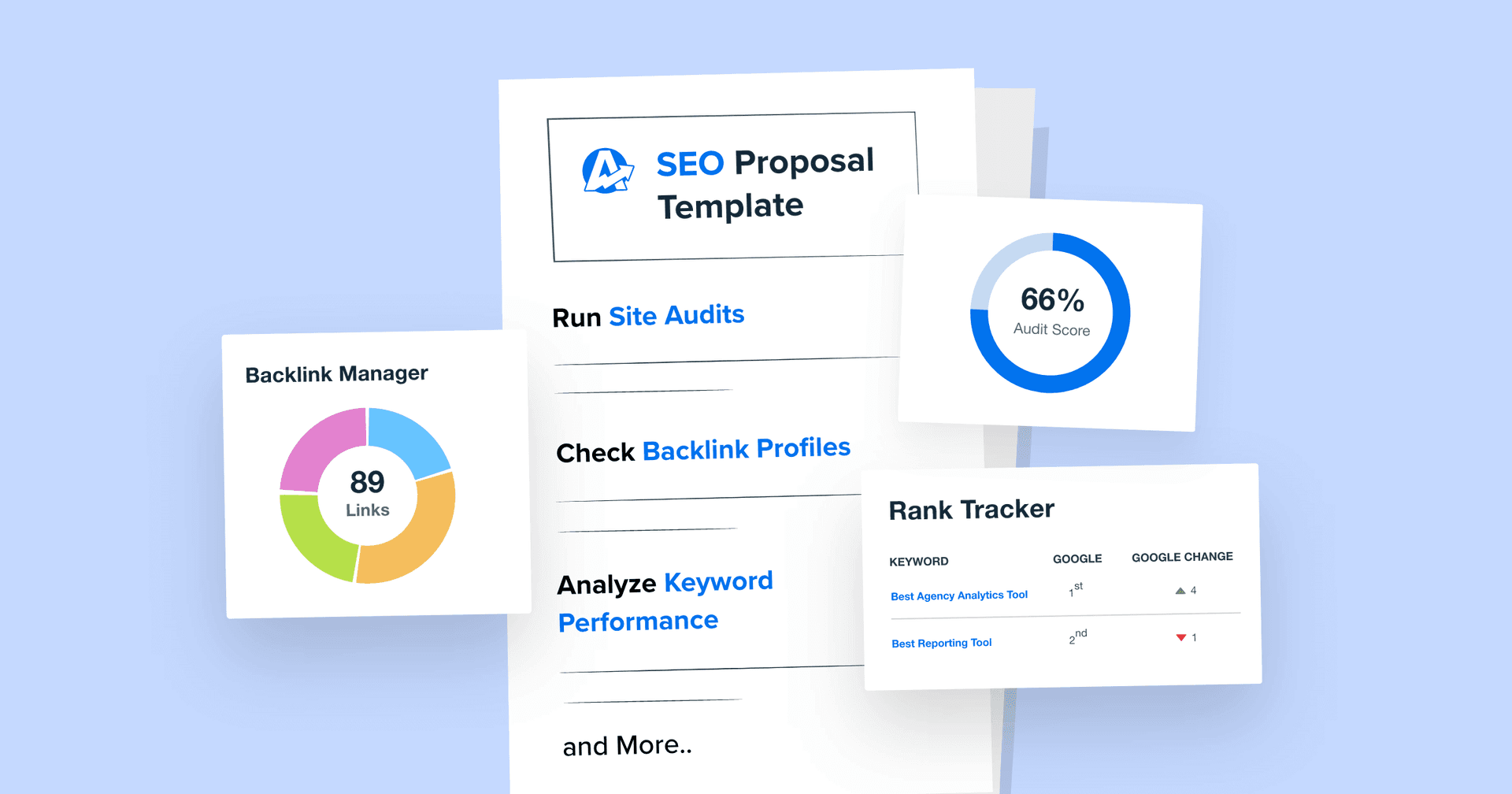Table of Contents
Table of Contents
7,000+ agencies have ditched manual reports. You can too.
Free 14-Day TrialQUICK SUMMARY:
Selling your marketing agency requires careful planning, understanding its value, and consulting experts to ensure a smooth process. This guide covers different exit strategies, key decisions, and steps for the selling process. It highlights the importance of realistic expectations for time and money, helping agency owners make informed choices and achieve their long-term goals.
You started with a vision–and with blood, sweat, and tears, you’ve made that vision come to life. Your agency has blossomed, and now you’re ready to move on to your next adventure. It could be the defining business transaction of your life: the sale of your marketing agency.
If you’re the owner of an established marketing agency and selling has crossed your mind, this article is for you. Or maaaybe you’re still building your agency, but you’re doing recon for a possible future sale or planning your exit strategy ahead of time. We see you. 👀
No matter where you are in the marketing agency lifecycle, this article is also for you! We’ll take a detailed look at everything you need to know about selling your marketing agency–decision-making criteria, the process, valuations, and more.
Watch: Successful Exit Strategies for Agency Owners👇
Let’s dive right in.
1. Define Your Goals for Selling Your Agency Business
Perhaps when you think about selling your agency business, you envision a big check and a long, sunny vacation. Or, maybe you envision taking the money and diving into your next business venture.
Far be it from us to tell you to quit daydreaming–but we do suggest you spend some time on realistic goal-setting when you get back from dreamland. Success will look different to everyone, so be sure to consciously and actively define how a successful sale looks to you.
Dig deeper than just “make a killing” or “sell high.” You’ll want to consider:
Selling price
To whom you sell
Timeline
Employee protections
Publicity
Client satisfaction
Professional relationships
Your legacy
What’s next for you
Agency Tip: If you’re struggling to define success for these topics, try the reverse. Define what total failure would look like, and work back from there.
2. Have a Pro Analyze the Value of Your Agency
If you are like the average business owner and about 80% of your net worth is tied to your business, we know the burning question on your mind is about dollar signs: just how much can I sell my marketing agency for?
Valuation experts will use different valuation multiples to calculate the value of your marketing agency. A valuation multiple is a ratio that compares two factors.
For example, one of the most common valuation multiples is called an “SDE Multiple.” An SDE multiple is the ratio of a seller’s discretionary earnings (SDE) to the implied value of the business. To find that implied value, the appraiser will need to use information from other agencies that have recently sold on the open market.
Your agency may be worth anywhere from two to five times your annual cash flow, depending on its financial health, location, process documentation, client concentration, and many other factors.
We won’t get into the nitty-gritty here of calculating the value of your marketing agency because it’s incredibly complex and nuanced. But we can’t stress this enough: engage a valuation firm, appraiser, or business broker early on to get a fair, accurate, detailed–and crucially, credible–valuation of your agency.
3. Develop a Realistic Timeline To Sell Your Agency
We get it. Maybe it’s hit you like a ton of bricks that you want out now. But hold your horses. You didn’t build this business in a day, and you’re not going to sell your marketing agency overnight.
Experts agree that most business owners need to allot one to two years to plan and execute their exit. But it can take even longer.
As Bill Gates said, "We always overestimate the change that will occur in the next two years and underestimate the change that will occur in the next ten."
Being prepared to take your time means you’re much more likely to actually make the sale (since only 20-30% of businesses put on the market actually sell, this in and of itself is an accomplishment) and to get the best price. That’s because timing is everything.
You will have the most success if you can sell when your market is good and your agency is reporting strong profitability–and it may take time to get those numbers up.
Agency Tip: Want to be able to report a higher revenue to potential buyers? A renowned McKinsey study found that increasing price by 1% translates to an 11% profit increase. To ensure you’re pricing your marketing services effectively to generate optimal revenue, check out our article: How to Price Your Agency Services.
With that in mind, write up a rough timeline of how long it will take you to complete all of the to-do items in this article. This includes:
The initial steps of gathering financials,
Creating your pitch deck, and
Hiring an expert to help with the mid and final phases, such as:
Strengthening your profitability,
Choosing your exit strategy,
Qualifying potential buyers, and finally,
Making the sale.
Keep in mind that you still need to continue growing and scaling your digital agency while you’re doing all of this work, so factor that into your time estimates. After all, the more revenue and profit your agency generates, the higher the valuation will be.
4. Engage a Coach To Help With the Sale of Your Agency
For many, the sale of their marketing agency will be the biggest sale of their life–this isn’t like selling your old memorabilia on Facebook Marketplace. It isn’t even like selling your home, although perhaps that’s a closer comparison. Whether it’s your first rodeo or your fifth, it’s worth it to hire a trained and experienced business broker who specializes in agency mergers and acquisitions.
Their expertise cannot be overstated when they help you navigate approaching potential buyers, completing due diligence without the deal falling apart, and understanding the legal and financial considerations.
Plus, you still need to run your business while all this is going on. A business broker will take some of the weight off your shoulders. There are a lot of things you can DIY–this isn’t one of them.
5. Create Your Agency Pitch Deck
Your pitch is your opportunity to make the case that buying your marketing agency is the opportunity of a lifetime–and a sound investment. To that end, it should be detailed, transparent, and organized in a manner that’s most effective for prospective buyers.
One of the most important sections of your pitch deck will be the financials. Use our guide to calculate your profit margins accurately and assemble other information such as salaries, client concentration, overhead expenses, pricing models, and revenue statements for at least the last five years.
What makes potential buyers feel even more confident in purchasing your marketing agency?
An Operator’s Manual. Including this in your pitch to potential buyers signals that your agency is built on a solid foundation and that this is a turnkey operation.
Document your processes and procedures, and demonstrate that you have thoughtful, smooth, repeatable methods to conduct business, from work execution to client management, client reporting, recruitment, training, professional development, and retention.
Demonstrate that you’re using the right tools and services to streamline operations and automate reporting and that you’ve trimmed the fat: no bloated costs, lackluster employees, or low ROI methodologies here.
Your pitch deck should also include information from your business plan, such as company history, vision, and values, your customer base and niche, your current scores on several key metrics, awards, and accomplishments.
6. Research and Qualify Potential Buyers
Many transactions fall apart because buyers fail to secure the capital to make the purchase. Your business broker can help you qualify buyers before engaging too heavily with them, sparing you from frustration later on.
Your potential buyers should provide financial statements to demonstrate that they have secured the necessary funding to make the downpayment and to fund several months of operations. You’ll also want to ask them about their experience in this field and their timeline for purchasing. These questions will help you to weed out tire kickers from serious buyers.
You’ll get the best dollar for your agency if you can find a buyer who is the right fit. Buyers come in all shapes and sizes and are motivated by a multitude of factors. For instance, a large agency may look to acquire yours for your client list, to “aqui-hire” your team, or to establish a geographic presence in your area.
Find a buyer whose goals align with what your marketing agency offers, and you’ll be one step closer to closing the deal.
7. Prepare a Comprehensive List of Assets
If you want to sell your marketing agency, you’ll want to demonstrate that it has long-term viability. You’ll need to create detailed lists of physical and intangible assets from real estate and hardware to intellectual property and sales pipeline.
Some folks call this compilation of sensitive information a “data room,”–and it’s never too early to start building yours. Whether you hope to sell in two years or 20, you can start storing and organizing this important documentation in one secure digital vault.
You’ll also need to be prepared to respond to buyers’ requests during due diligence. The best way to do that is to be as prepared as possible so that you are not rushing to gather information (and potentially tipping off your staff of an impending sale).
Your attorney or M&A consultant can actually set up a “mock due diligence” for you to help you predict what will be asked of you and gather that information in advance of negotiations. Buyers will want to know about loans and debts, client contracts, subscriptions and tools used, headcount and churn, and more.
8. Determine the Terms of Sale and Financing Options
As they say, there’s more than one way to bake a cake, and there’s more than one way to exit a marketing agency. An M&A consultant can help you synthesize your preferred options with those that are most likely to help you meet your goals of actually selling your agency.
A few sales options are briefly summarized here:
Sales Option | What It Is | Pros | Cons |
|---|---|---|---|
Selling to Another Business | Also known as a trade sale, this involves being absorbed by another business. | It has the potential for the biggest payout. | This is usually the lengthiest process, and unfortunately, for many agencies, the sale just doesn’t materialize because of all the parties involved. |
Private Equity | This is an option for very niche agencies. The buyers want to get in-depth knowledge from you fast. | This has upsides for owners who still want to cash out but still be involved in the business without the headaches and responsibility of being in control. | The downside is that you’re not the boss anymore, so you’ll need to be able to follow another leader. |
Selling to Agency Management | This involves you leaving, but essentially everything else at the agency remains the same. | It can be quicker and less upheaval for you and your team. | It is contingent on management having the capital to buy you out. |
Succession | This is where you exit while still earning a passive income. | It has the potential to be the best option for many agency owners. | This requires years–if not decades–of careful planning to build up the right teams to take over (including finding a buyer whose capital and goals* align with yours). |
* One buyer may be looking to invest in a well-running firm and have little to no change in leadership; that wouldn’t work if your goal is to retire.
9. Plan How to Transition Clients, Employees, and Leadership
There are things you’ll need to negotiate with your potential buyers, like.
Will there be a press release?
How will you inform clients and address their concerns?
What changes–if any–will come into effect immediately?
Will your brand and company be absorbed into another agency or will it remain independent?
Can employees expect a round of layoffs, or can you negotiate a grace period for them?
Is leadership required to stay on for a set amount of time to onboard the new owners?
This is just the tip of the iceberg.
There are more questions than we can count regarding the transition from one owner to another, and these questions are vastly different depending on the unique context of your sale.
But, like virtually everything we’ve discussed in this article, preparation is key. It’s much easier to work through all of these potential issues with an expert and have some sort of plan in place than it is to try to figure it out as you go along.
10. Understand the Tax Implications and Other Costs
Talk with your consultant or with a financial advisor about unforeseen costs and what this could mean during tax season. This will vary greatly from state to state or country to country and be affected by the terms of your deal.
Needless to say, in this high-stakes game, you don’t want to incur unforeseen expenses or be unprepared in the event that the IRS (USA), CRA (Canada), or other national tax agencies audit you.
11. Consider Who to Talk to on Your Staff
There’s a reason we put this one last. While it may be tempting to be open and honest with your team at the outset, this is one matter that we recommend keeping mum about.
The reason is simple: selling your marketing agency is going to be a long, unpredictable ride, perhaps with a few false starts or deals falling through. It sucks, but that’s the reality.
This constant uncertainty isn’t good for the day-to-day operations of your business. You need your team focused on meeting their KPIs and achieving goals, not worried about if the new owner will ax casual Fridays or cancel the annual retreat.
You can–and should–create a plan of how you will communicate this news to your team to cause the least amount of panic and disruption. This should not be an off-the-cuff comment made in the breakroom to whoever is in the vicinity. Carefully consider the who, what, and when.
The Who
Which staff (if any) need to know before others? If you intentionally tell some staff, such as your managers, first, can they be trusted not to disclose this information to the rest of the staff? Do what you can to avoid the rumor mill making a mess of this situation.
The What
Practice explaining what is happening in clear, concise terms. Take time to brainstorm the concerns and questions that are most likely going to come up and prepare answers ahead of time. Staff may want to know: who are the buyers? When are they taking over? Is my job safe? Why did you choose to sell? Are you staying on or exiting immediately? What do I tell my clients?
The When
There are two different “whens” to consider: first, where you are in the sales process. Again, we recommend waiting until the ink is dry on your deal. The second is scheduling. Be intentional about when you tell your staff, whether it’s in an all-hands meeting first thing Monday morning or last thing Friday afternoon. Consider what will be the least disruptive for your team, which meeting will have the most attendance (e.g., is half your staff booked off on Friday?), but also what will create the greatest sense of calm.
Sell Your Marketing Agency With Confidence
Whether your goal is to spend more time with family, retire, or move on to your next venture, our goal is to prepare you to sell your agency successfully–to achieve your goals, preserve your legacy, and avoid legal headaches. The single most important thing you can do is engage professionals such as appraisers, business brokers, or mergers and acquisitions specialists, who have the experience and resources to ensure that this transaction is done right.
It’s also vital that you adjust your expectations on two fronts: money and time. When it comes to money, the reality is that most agency owners will not sell their marketing agency for the kind of riches we all daydream about. Put aside the fantasy of an I-just-won-the-lottery-sized check and focus on getting your business accurately appraised.
As for time, buckle up and settle in for the long haul. Selling your agency can take years (even a decade) of forethought, documentation, research, and planning. It’s never too early to start this work.
Whether you’re actively trying to sell your agency as soon as reasonably possible or just starting to think about a future where perhaps you sell, we wish you the best of luck.

In the meantime, win back more billable hours and increase your agency’s profitability with AgencyAnalytics' robust client reporting platform. Start your free 14-day trial today.

Written by
Elyse Gagné develops branding and content strategies that unite businesses with their customers. A podcast junkie, you'll find her learning about the latest technologies and brand storytelling techniques while she gardens or hikes.
Read more posts by Elyse GagnéSee how 7,000+ marketing agencies help clients win
Free 14-day trial. No credit card required.






